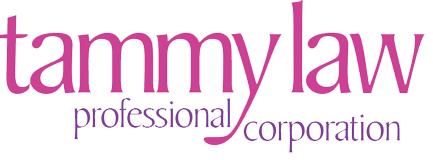“Limited Scope Retainers” is the rather pedantic phrase often used to describe a type of services that is becoming more and more common, especially in family law. As hourly rates climb and cases become increasingly complex and time-consuming, litigants are finding that they are unable to afford traditional full-service legal representation. In a world where hiring a full-service lawyer is frequently extremely expensive and where not having a lawyer in court could spell disaster, limited scope retainers are making a lot more sense to clients and lawyers alike.
“Limited Scope Retainers” are basically retainers that are “limited” in nature. Traditionally, lawyers would represent a client from start to finish and do everything related to the case – from answering letters, to drafting documents, to appearing at court, to negotiating a settlement, to investigating facts – all of these tasks would be completed by a lawyer, charging his or her hourly rate. By contrast, limited scope retainers allow lawyers to work for clients on a “piece-work” basis. The lawyer and client agree to the scope of the work to be done, it is carefully documented, and the lawyer is paid a retainer for those services. Because the nature of the work is limited, costs are better controlled and retainers are frequently smaller. To a client who is cost-conscious, limited scope retainers are often ideal arrangements.
In the family law context, a limited scope retainer allows the lawyer to apply his or her expertise in specific areas that are requested by the client. For example, instead of representing the client for the entire proceeding, a limited scope retainer may include the following arrangements:
- The lawyer and client agree that the lawyer will draft a court application, financial statements, and affidavit in support for custody and access for the client on the basis of information provided to her by the client
- The lawyer and client agree that the lawyer will provide the client with procedural advice on an appeal
- The lawyer and client agree that the lawyer will draft, serve and file a settlement conference brief for the client
- The lawyer and client agree that the lawyer will draft an affidavit in response to a motion using information provided by the client
- The lawyer and client agree that the lawyer will create a net family property statement and assemble a brief with all the back up documentation in the statement
All of these arrangements usually lead to a smaller legal bill for the client than what is typically incurred with full-service representation.
So why aren’t more lawyers doing limited scope retainers? I know of some lawyers who categorically refuse to do any limited scope retainers. The reason is because such arrangements carry with it some risks to the client and the lawyer. Because the work agreed to under a limited scope retainer is often dependent on information provided by the client, the lawyer may not be able to provide complete advice to the client, particularly when the client omits to advise the lawyer of a crucial fact. In addition, there is the potential for confusion between the client and the lawyer as to the true scope of the work to be done that may lead to disgruntled clients and claims.
Although the risks are real, in recent months, I have found myself offering more and more limited scope retainer arrangements to prospective clients. The reality is legal services is expensive. Many of my clients are professionals who come to see me because they have legal needs that need to be addressed but not unlimited resources. Because these clients are able to manage some or even most of their own case, it often makes sense for them to hire a lawyer to assist them in areas that would be more efficiently managed by a lawyer. In my experience, these are the clients that are candidates for limited scope retainers.
When looking for a lawyer who does limited scope retainers, look for someone knowledgeable in the field and who has good communication skills. The success or failure of these retainers frequently turns on the lawyer and client’s ability to communicate with each other. A lawyer with strong writing and drafting skills will also be an asset as most of the work done is often written.
If you have any questions about limited scope retainers, please contact me using the form on this website.


Comments are closed.